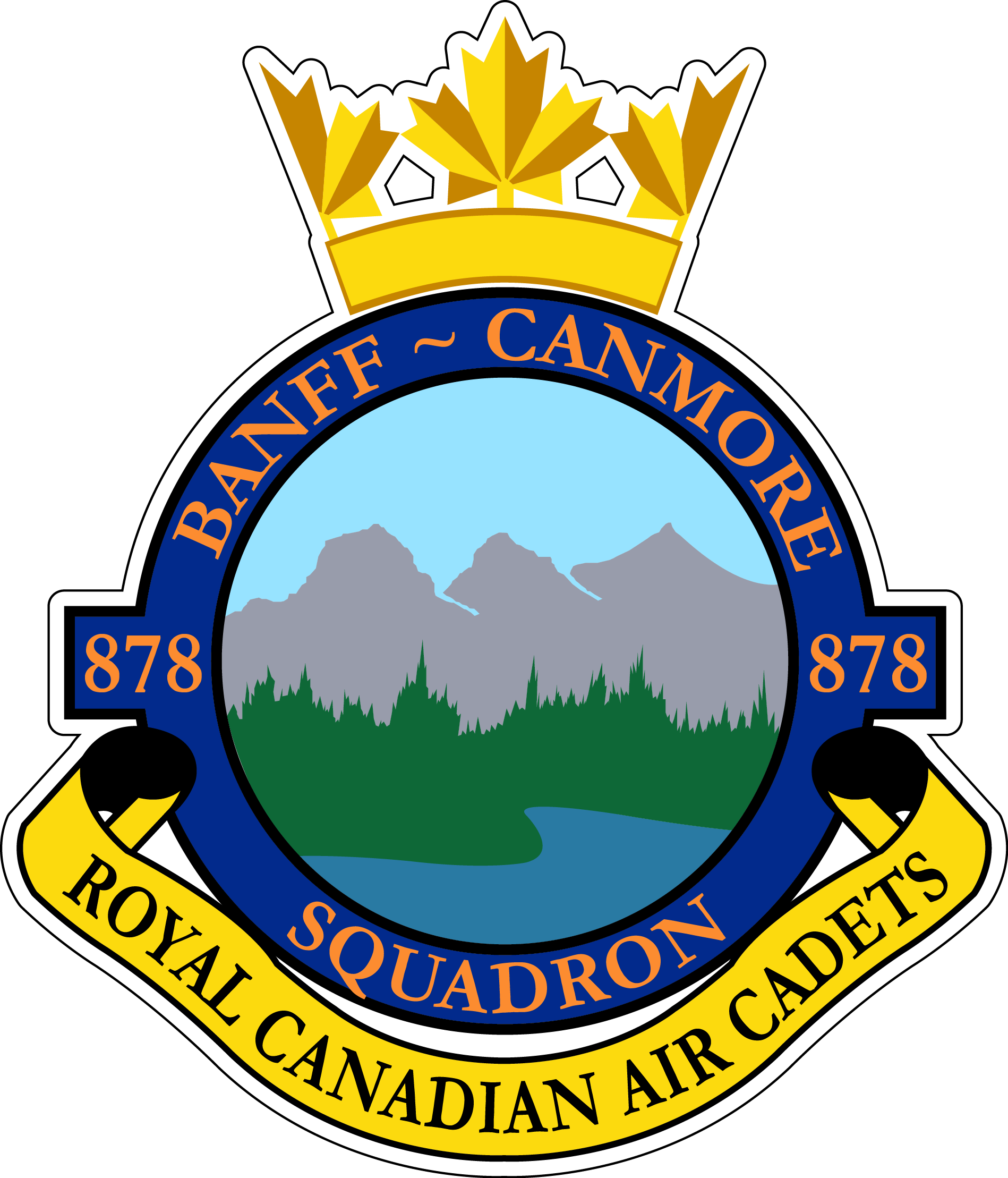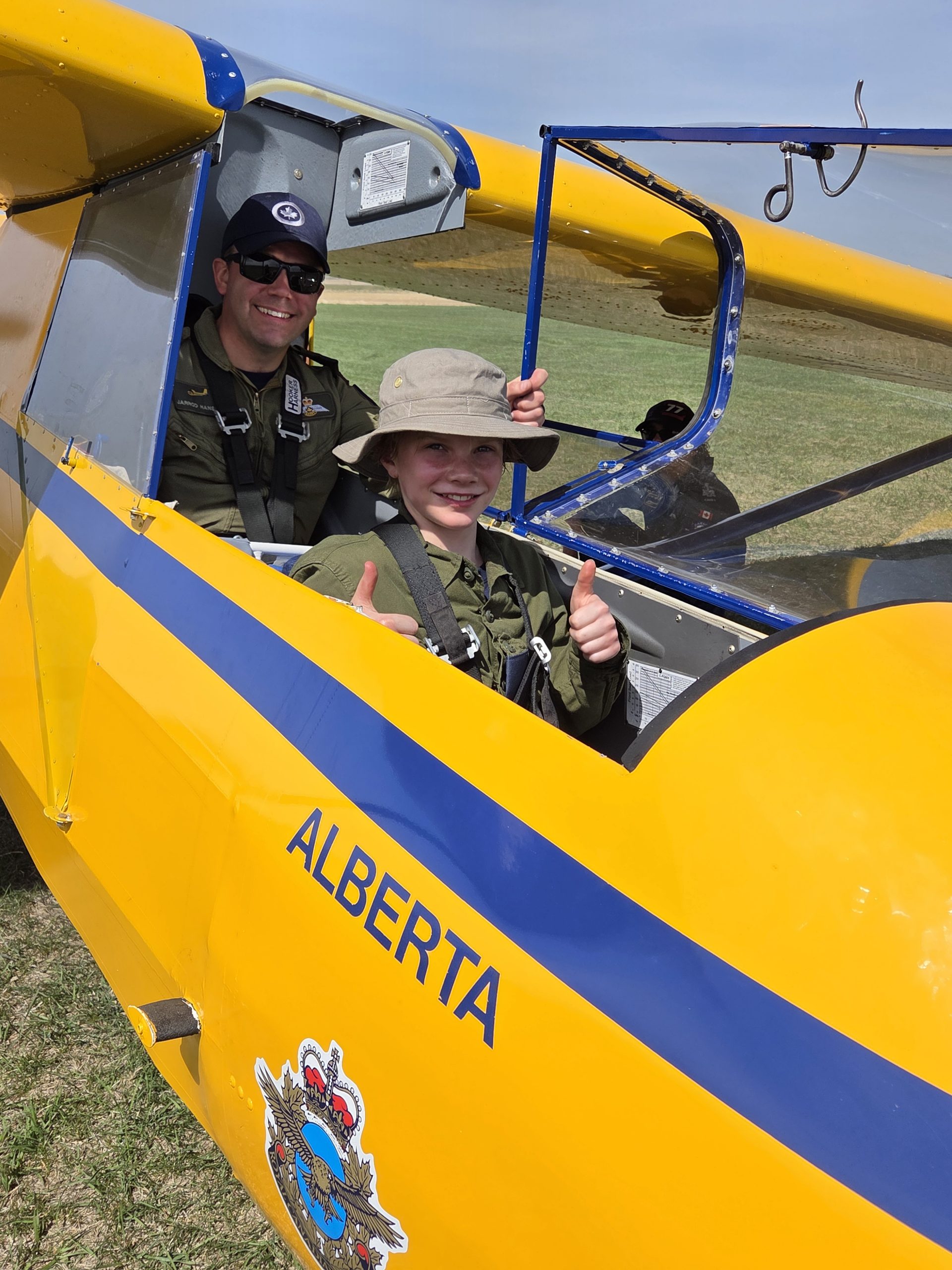Discover Your Potential
Additional programs and activities
Upcoming Events
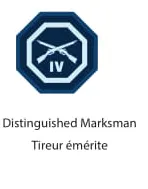
Marksmanship
Cadets have the oppertunity throughout the winter to participate in Marksmanship practice firing .177 calabre air rifles and compete at a local level to obtain proficiency badges and the opportunity to compete within the region, provincially and nationally. The Town of Canmore and Canmore Fire Rescue generously share their space with 878 Squadrons to provide cadets with this oppertunity,
November 16th, 30rd, December 7th, 1th 2025, Janurary 11th, 25th, February 8th 2026

Cadet sports competition in Cochrane
This is an Area Directed Activity. We are participating in an all day sports competition in Cochrane against an Army Cadet corps. This is not mandatory but will be a fun day of sports and an opportunity to meet other cadets from the Canadian Cadet Organizations. Lunch will be provided.
November 23rd, 2025

Regional Marksmanship Competition
Selected Cadets will compete in the Regional Cadet marksmanship competition in Calgary AB.
February 21st or 22nd, 2026
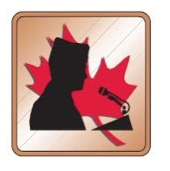
Effective Speaking Workshop
Join us for an interactive workshop to hone your public speaking skills.
February 21st, 2026

Effective Speaking Squadron training
Squadron cadets can attend to improve their public speaking skills and work on prepared speeches if wishing to compete and practice impromtu speeches.
March 3rd, 10th, 17th

Mess Dinner
Formal dinner at the Banff Legion for current cadets to celebrate the 46th year or 878 Squadron
March 14th, 2026

Effective Speaking Squadron Competition
Squadron Effective Speaking Competition. Winners will progress to regional competition. For more information n the 2026 competition please visit the Air Cadet League of Canada website
March 24th, 2026

Effective Speaking Regional Competition
Regional Effective Speaking Competition in High River Alberta. Winners will progress to provincial competition. For more information n the 2026 competition please visit the Air Cadet League of Canada website
April 11th, 2026

CFB Cold Lake / CFB Edmonton Squadron Visit
This year we are thrilled to be planning a visit to CFB Cold Lake and have cadets have a hands on learning experience viewing all aspects of one of Canada’s Air Force operating bases. Details are still being finalized. The trip will be approximately 5 days long during the CRPS divisions Spring Break.
Tentative April 5-9th, 2026
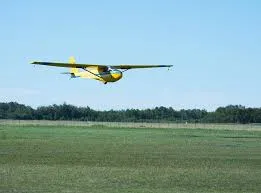
Gliding
Cadets will have a chance to fly in a glider at one of our provincial gliding centres. Details TBD
Tentative
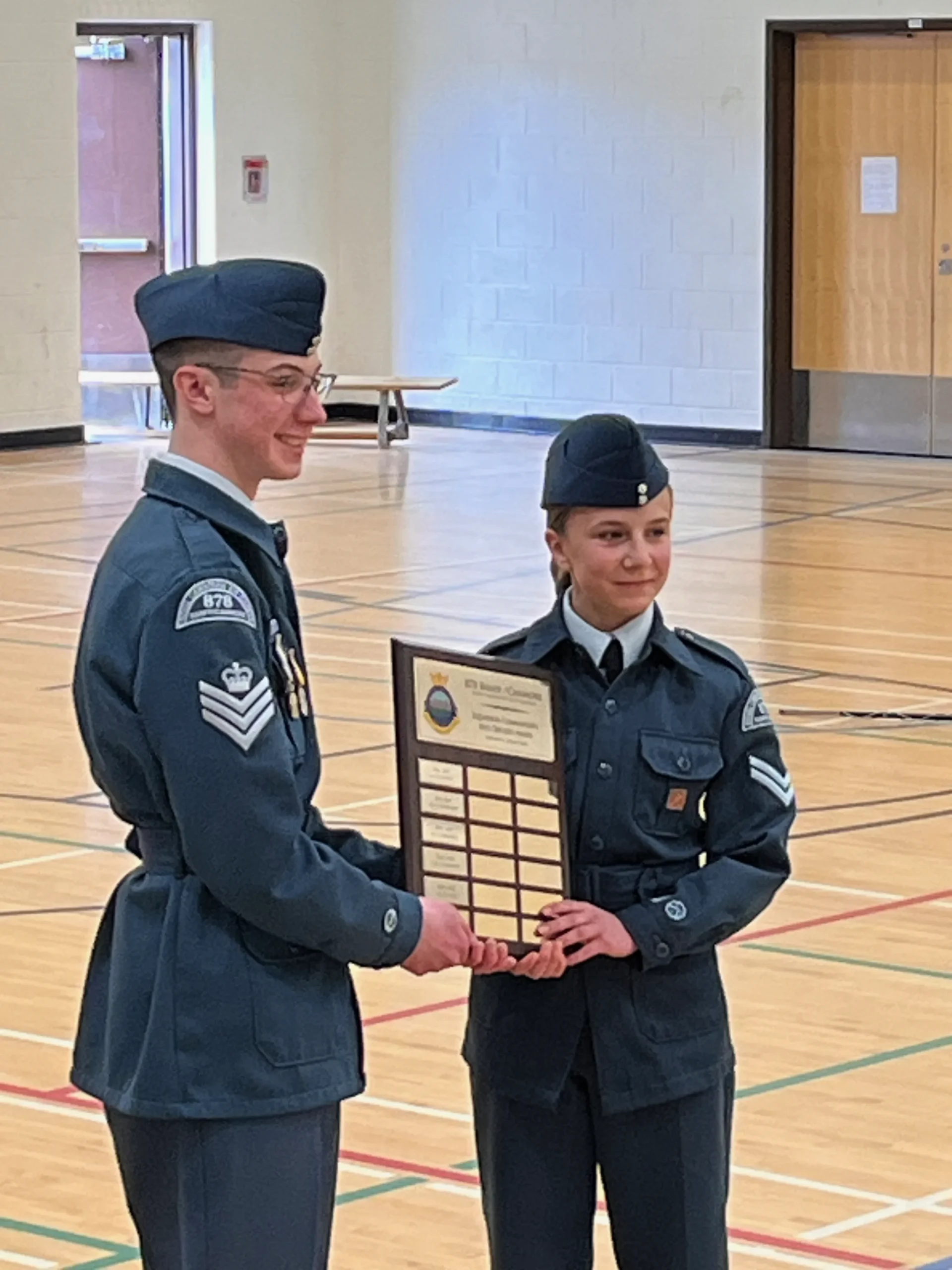
Annual Ceremonial Review
End of year parade where cadets are honoured with local, provincial and national awards. Parents and guests are welcome to attend and celebrate cadet achievements.
June 13th, 2025
National Effective Speaking Program
The effective speaking program is an experience in individual development. The speaker’s own growth, measured against his or her own previous experience and accomplishments, is the most important feature of the competition. Air Cadets are aiming to be more valuable members of society. They are learning to organize and present ideas, opinions, and information in a logical, persuasive manner. They are building confidence in self-expression. They are taking responsibility for the most important skill of adult life – communication.
Effective Speaking Guide
Topics for 2025
- How has what you learned in the Air Cadet Program affected your plans for the future?
- Name 3 things that have been invented by Canadians and describe their impact on Canada and the world.
- Who is your favorite Canadian (famous or not), and why?
- What impact do you think Artificial Intelligence (AI) will have on the way we live and work?
- Discuss Canada’s role in the Space Program. Past, Present and Future.
- Which person has had the most significant impact on your life?
- How do you imagine aircraft engineering in the future?
- Explain the evolution of aviation around the world.
Topics examples for impromptu speeches
Previous National Competition Impromptu Speech Topics:
- What do you see as the future of aviation and space travel in the next 100 years?
- In this age of diversity and social media, what does the word duty mean to you?
- If you could meet someone, dead or alive, who would it be?
- What virtue could individuals use more of?
- What do you plan on doing 10 years from now?
Competition Application
Resources for interested cadets
Currently, 878 Squadron does not have a formal effective speaking program. However, here are a few resources cadets can look at in addition to attending the South Wing Effective Speaking Workshop in March. Do not forget to download the Air Cadet League Effective Speaking Handbook which contains excellent information.
Effective Speaking Links
https://www.youtube.com/watch?v=xSp78RwcAS4
TEDtalk video on speaking. Good
https://www.youtube.com/watch?v=pk09GcRIo98
10 min impromptu speaking video. Good
https://www.toastmasters.org/resources/video-library
Toastmasters videos
https://tyboyd.com/public-speaking-tips-and-training-videos/
Short videos on specific points
First Aid and CPR
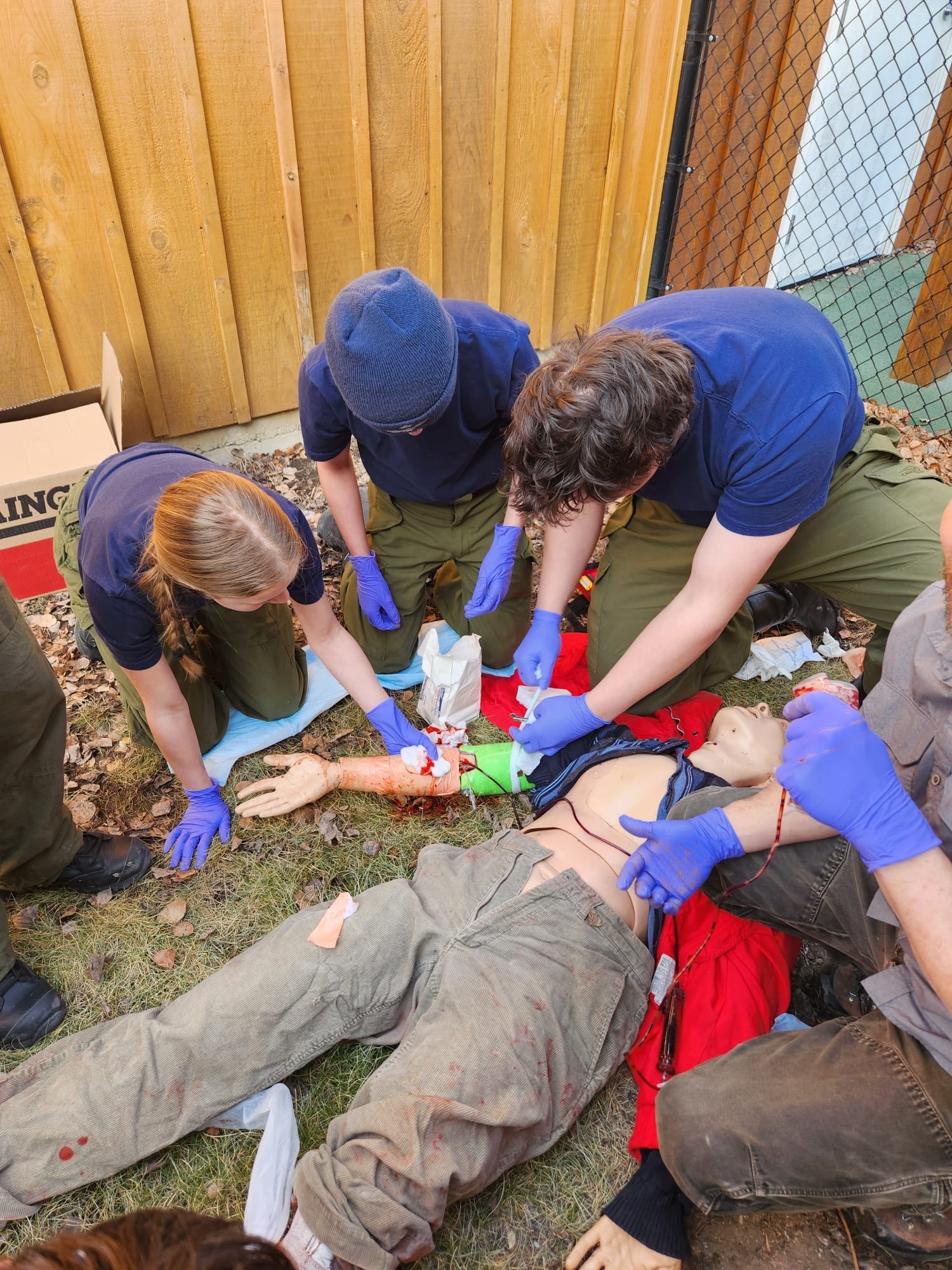
First Aid Course will be held in the 2026 / 27 Training Year
Course Outline
The Remote First Aid with intermediate First Aid is delivered over 3 days, supplemented with online learning. In-person sessions take place both in a classroom and outdoors.
This course is a great introduction to wilderness first aid. It is suitable for those who work in a `non-standard` environment, or for those who recreate in the backcountry. It is not appropriate for those who will find themselves in a leadership or guiding capacity, or for those who will be venturing into truly remote regions for an extended period of time, with no additional help available to them.
Participants receive access to online course materials for the duration of their certification. Use of all medical supplies required during the course is included. Upon successful completion of the program, participants will receive a Remote First Aid certificate and a Basic First Aid with Level C CPR certificate (for the workplace). Both certifications are valid for 3 years.
First Aid Book
Currently unavailable
First Aid Tips and Tricks Provided by the Red Cross
Topics include:
- First aid tips for cats and dogs
- First aid on the streets video series
- First aid kit contents
- Flu prevention
- Signs and Symptoms of a Heart Attack
- Signs and symptoms of a Stroke
- Compression only CPR
- Bike Safety
- Cold Emergencies
- Heat Emergencies
Rocky Mountain Adventure Medicine Website

Cadet Marksmanship Reference Manual
Marksmanship Classification Program
- to allow all cadets an opportunity to participate in a progressive marksmanship program;
- to promote the safe and proficient use of firearms for sport and recreational purposes;
- to produce proficient coaches and officials; and
- to stimulate and maintain an interest in the CCO and act as a recruiting tool.
The Marksmanship Program has both participatory and competitive aspects:
- Participatory Aspect: introduction to air rifle firing includes familiarization, classification and recreational marksmanship:
(1) Familiarization marksmanship is part of the mandatory activities at the corps/squadron level and is described in the elemental cadet training manuals,
(2) Classification marksmanship is part of the complementary activities at the corps/squadron level and is described in Annex A, and
(3) Recreational marksmanship is part of the complementary activities at the corps/squadron level and is described in the elemental cadet training manuals; and - Competitive Aspect: various levels (corps/squadron, zone, provincial, national) that allow cadets to participate in progressively challenging activities. Details on the CCM Marksmanship Championship Series (CCMMCS) can be found in Annex B. The CCMMCS is fully described in the Cadet Marksmanship Program – Reference Manual (A-CR-CCP-177/PT-001).
